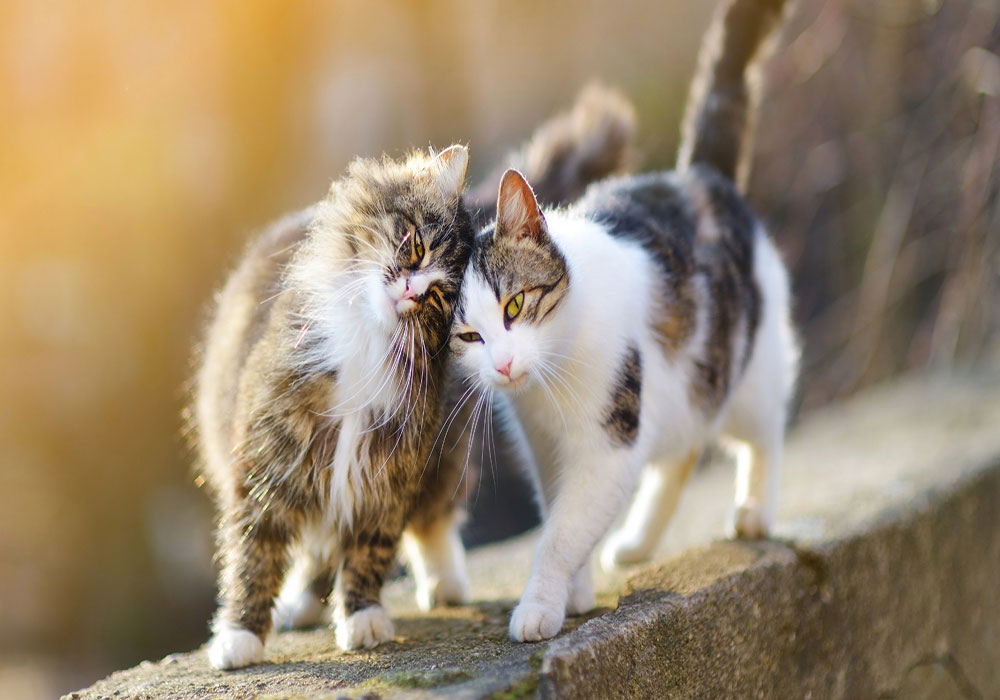Caring Year-Round – No Matter the Weather
Outdoor cats face different challenges depending on the time of year. Whether you’re feeding a few cats or managing a whole colony, here are practical tips to keep them safe and healthy throughout the seasons.
Spring – Kitten Season & Parasites
Outdoor cats face different challenges depending on the time of year. Whether you’re feeding a few cats or managing a whole colony, here are practical tips to keep them safe and healthy throughout the seasons.
What to Watch:
Pregnant or nursing mothers
Abandoned or orphaned kittens
Fleas, ticks, and worms become more active
What You Can Do:
Trap and neuter early – before litters are born!
Never remove kittens too soon – mom may be nearby. Wait, observe, then act.
Use safe flea treatments (ask a vet) — especially for kittens.
Keep feeding stations clean to prevent disease.
Pro tip: Prepare small shelters or nesting boxes for moms with kittens — place them in quiet, hidden spots.
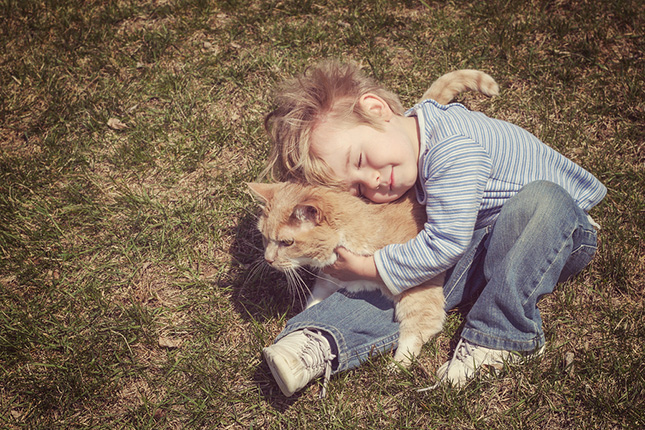
Summer – Heat, Dehydration & Insects
Hot Maltese summers can be dangerous for outdoor cats — especially the young, sick, or elderly.
What to Watch:
Dehydration, sunburn (especially on ears/noses of light-colored cats)
Food spoiling quickly in the heat
Flies and maggots near wounds or dirty areas
What You Can Do:
Provide fresh, cool water daily — in shaded spots
Use ceramic or metal bowls (plastic can heat up and grow bacteria)
Feed during early morning or evening
Remove uneaten food after 1–2 hours
Add shade — cardboard roofs, tarps, plant pots
Freeze water bottles and place them near shelters to cool the area for a few hours.
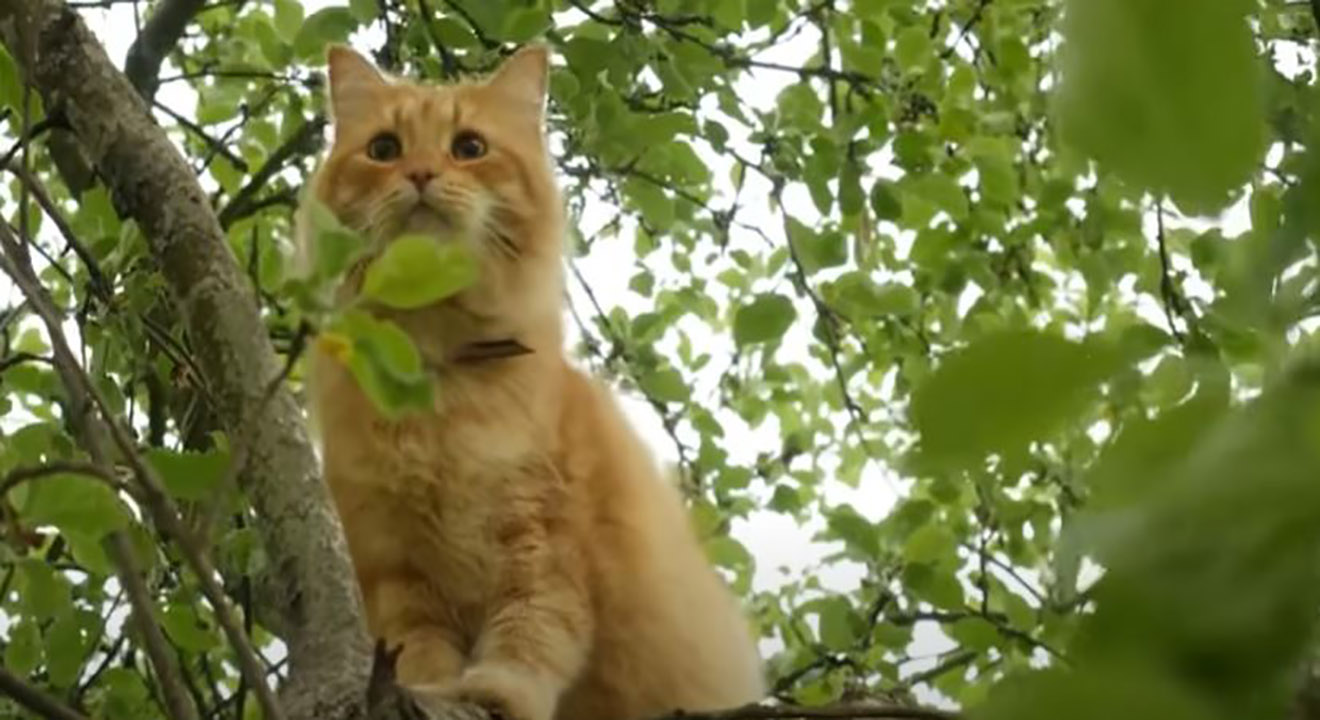
Autumn – Prepping for Winter
Temperatures begin to drop and cats eat more to build body fat. It’s also your last big chance for TNR before winter.
What to Watch:
Increased appetite
Territorial fights (as colonies shift)
Cats looking for warmer hiding places
What You Can Do:
Start building or upgrading shelters
Sterilise any remaining un-neutered cats before winter hits
Ensure shelters are dry, windproof, and elevated
Offer more calories – wet and dry food combinations
Use straw (not blankets) in shelters — it repels moisture and keeps cats warm.
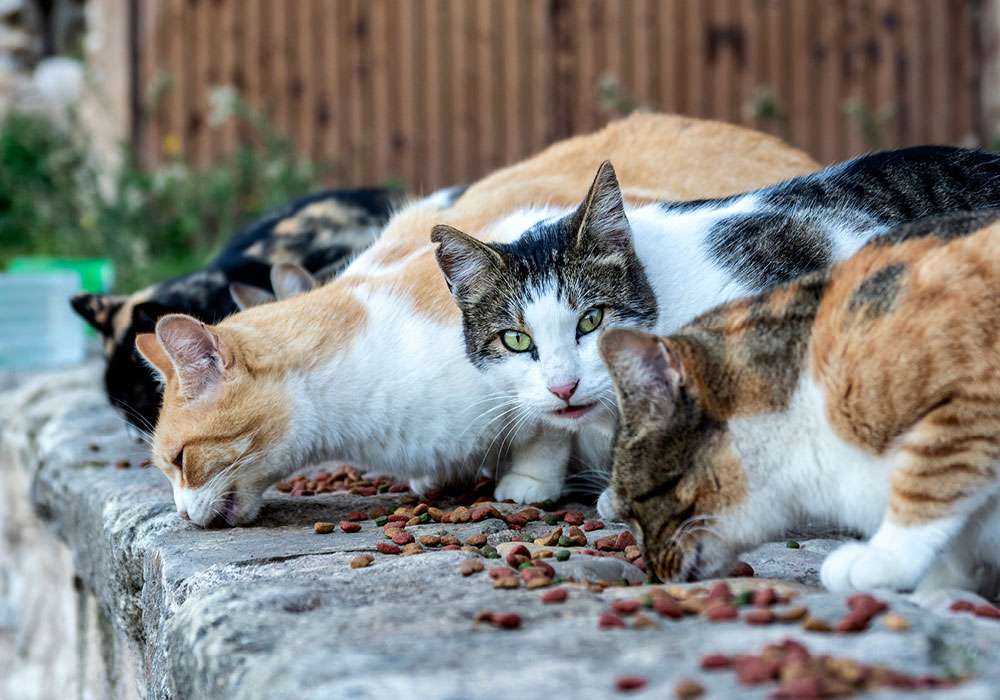
Winter – Cold, Rain & Storms
Even in Malta, winter brings heavy rain, storms, and chilly nights. Outdoor cats need extra help.
What to Watch:
Wet, cold, or shivering cats
Soaked shelters or collapsed boxes
Dehydration (less water intake in winter!)
What You Can Do:
Check shelters daily for dryness
Use waterproof bins or styrofoam boxes for insulation
Slightly tilt shelters forward so rain runs off
Feed twice daily — especially in bad weather
Use thick feeding stations with lids to protect food
Don’t use towels or blankets inside shelters — they hold moisture and make cats colder.
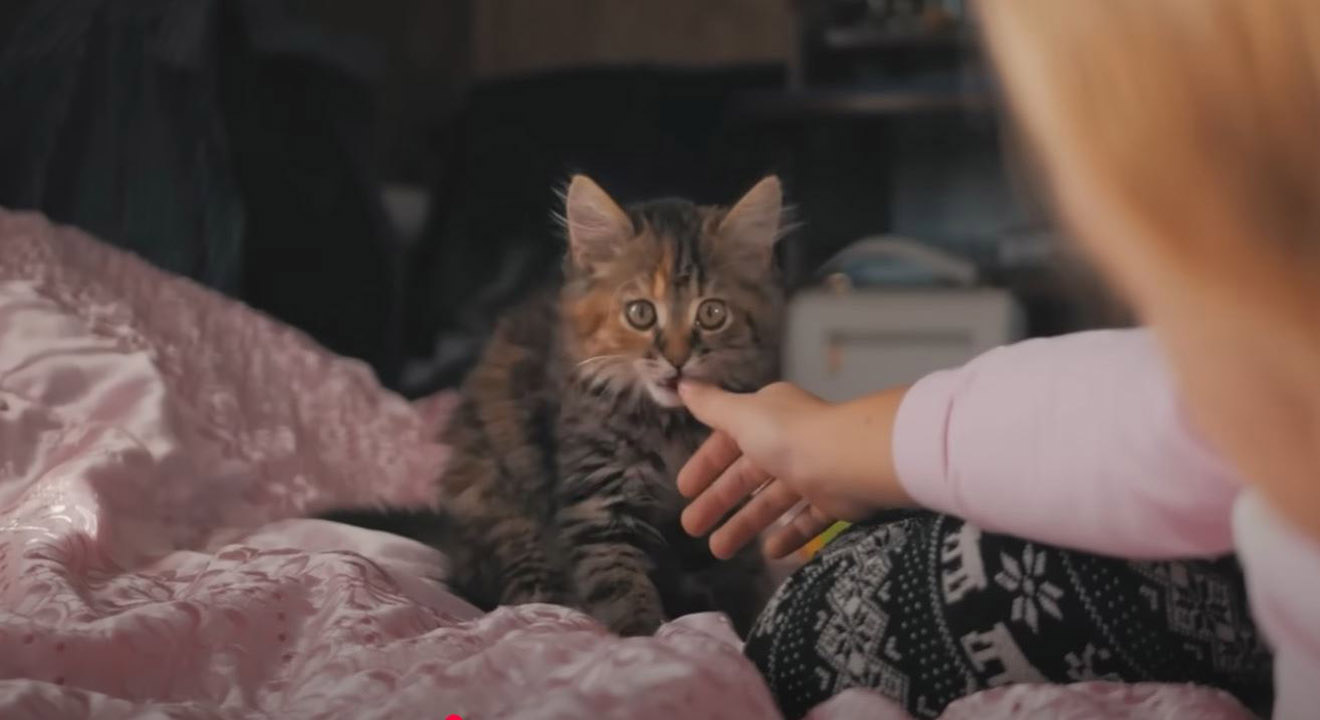
Year-Round Essentials
Regardless of the season, always:
Provide fresh water
Keep feeding areas clean
Watch for signs of illness or injury
Track which cats are sterilised or new arrivals
Be consistent — same time, same place
By adapting your care with the seasons, you give outdoor cats their best chance at a safe, healthy life — all year round.
Thank you for caring!


